Ever thought about exploring a country with beautiful beaches, green forests, historic ruins, lively cities, and welcoming locals? Maybe you should think about El Salvador for your next trip. El Salvador is a compact yet varied nation in Central America with plenty to offer to travelers seeking adventure, culture, and nature. Before you start packing and planning your trip, you may be wondering: Is El Salvador safe to visit in 2024?
It’s a fair question, given El Salvador’s history as a notoriously violent and unsafe country. Things have turned around in recent years, and the country is now considered one of the safest countries in Central America.
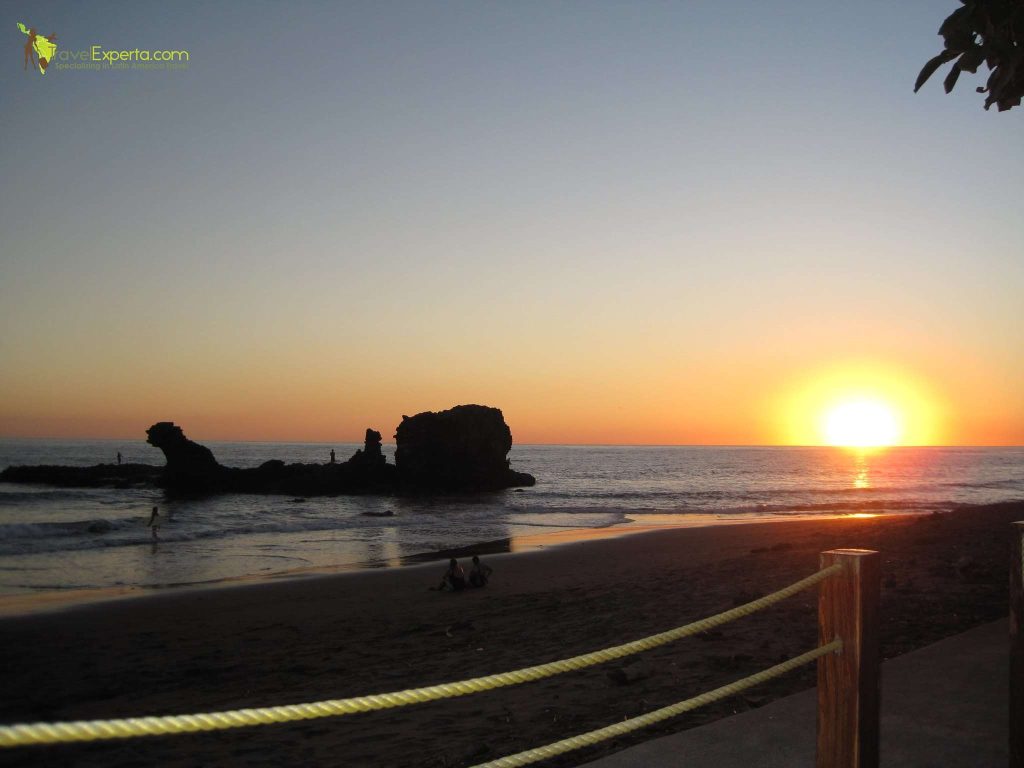
Is El Salvador Safe?
El Salvador is safe to visit, and nowadays is even safer with tourist areas, attractions, and spots having better maintenance. The country has grappled with a reputation for violence and crime for several years now. News headlines often highlighted gang-related incidents, contributing to a perception of danger.
However, it’s essential to separate perception from reality.
While El Salvador faces challenges related to crime, it’s essential to recognize that most visitors have safe and enjoyable experiences.
Like any destination, taking precautions and being aware of your surroundings significantly reduces risks.
Planning a Trip to El Salvador?
Check Out These Helpful Services:
Find the best flight deals
This is the site I recommend, you can check all the different prices.
Best accommodation prices
I highly recommend this one, it’s the best option right now for Central America
The best way to get around is by car
Check out this site to rent a car and go at your own pace.
The Current Situation of Safety in El Salvador
To grasp the present safety situation in El Salvador, it’s essential to examine the historical backdrop of crime and violence in the nation. The country has faced challenges like civil war, political instability, social inequality, and gang activity, leading to high rates of homicide, extortion, kidnapping, and other crimes.
However, since 2020, El Salvador has seen a significant drop in homicides, reaching all-time low levels and solidifying its position as one of the safest countries in Central America.
Official data shows that El Salvador recorded 154 homicides in 2023, resulting in a rate of 2.4 per 100,000 inhabitants. This represents a 98% decrease from 2015 and a 69% decrease from 2022.
El Salvador experienced multiple days without any homicides, indicating a positive trend in safety.
What are the reasons behind this dramatic improvement in security?
Several factors have led to this change, including the implementation of the Territorial Control Plan by the government, which has boosted the presence and efficiency of the police and military in the most impacted areas, cooperation, and communication between authorities and gangs, social and economic development programs, and the backing of the international community and civil society.
Sure, El Salvador still faces some crime and violence. It still has some challenges and threats to deal with, yet, it’s clear that the country has made great strides and is now a safer destination than in the past.
The Common Risks and Threats for Travelers in El Salvador
Even with the security improvements, El Salvador still has certain risks and threats that travelers should be mindful of and ready to handle.
Common crimes and incidents that can impact tourists include robbery, pickpocketing, petty theft, and scams. Those can occur in various locations, with certain areas and situations being more prone to them, like downtown San Salvador, public transportation, ATMs, markets, bars, nightclubs, and beaches.
Crime and violence
Crime and violence vary in intensity across different regions of the country. Urban areas, like the capital San Salvador, and its surrounding municipalities, typically experience higher crime rates compared to rural areas.
Some areas, labeled as “red zones”, are known for high levels of gang activity and violence, so you should steer clear of them.
Moreover, certain areas like the eastern departments of Morazan, Usulutan, and San Miguel, as well as the northern department of Chalatenango, have a background of political and social conflict and might face sporadic incidents of violence.
What are the most common types of crimes against tourists?
While most of the crime and violence in El Salvador is directed at locals, tourists are not immune to it and may face some risks and threats during their trips.
The most common types of crimes against tourists are:
- Petty theft. This is the theft of small items or amounts of money, usually by opportunistic criminals who take advantage of the tourist’s distraction, carelessness, or vulnerability. Petty theft can occur anywhere, but especially in crowded or touristy places, like markets, buses, or terminals.
- Robbery. This involves the stealing of bigger items or larger sums of money, typically carried out by armed or aggressive individuals, it can happen in various locations, with isolated or dimly lit areas being particularly vulnerable, like alleys, trails, or parking lots.
- Fraud. It involves deceiving or manipulating tourists by dishonest individuals or groups seeking to gain money or information from them. Fraud can happen in various locations, particularly where tourists engage in money exchange, shopping, or accessing information, like banks, ATMs, or money exchanges.
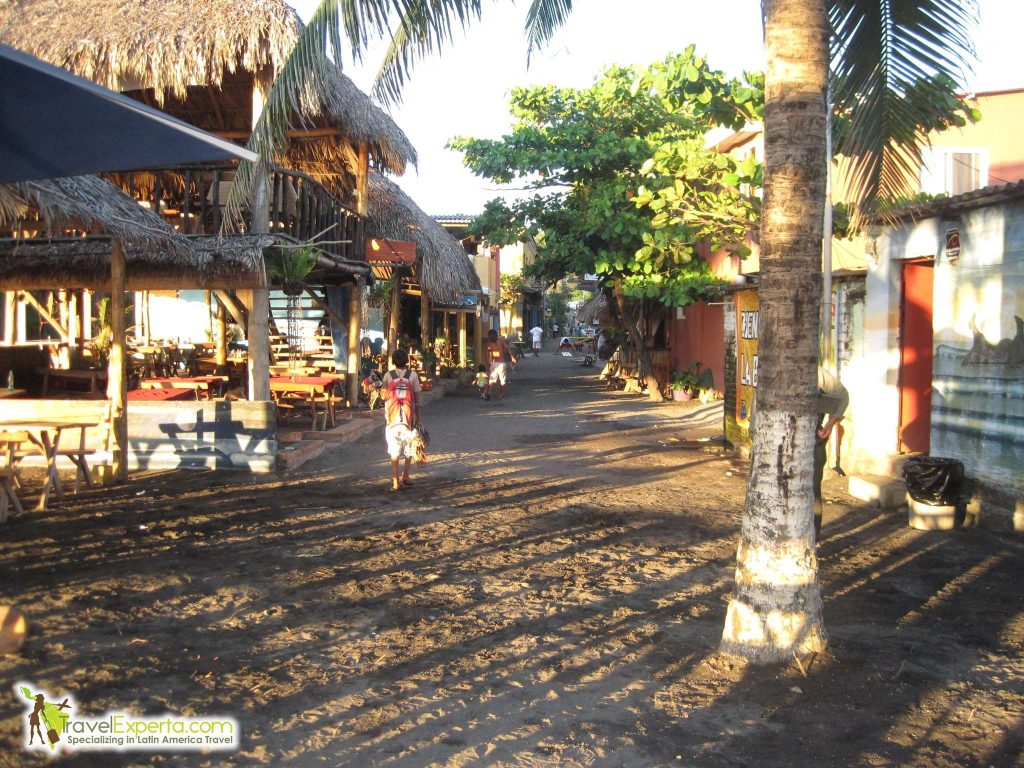
Health and medical
What are the main health and medical issues in El Salvador?
In El Salvador, the quality of health and medical care can vary a lot based on the location, facility, and service provided.
Although there’s no way to ensure you won’t fall ill or get injured in El Salvador, just like any trip to any other country, there are precautions you can follow to lower your risk or lessen the impact if something does happen.
El Salvador’s health care and emergency services are moderately available but may not always be accessible or reliable, particularly in rural or remote regions or during emergencies.
You may encounter challenges and obstacles when seeking access to quality health care and emergency services.
Also, there are some health and medical issues that you need to be aware of and prepared for, such as:
Infectious diseases
Like many other countries in the region, El Salvador frequently deals with infectious diseases that can be quite serious, largely because of the tropical climate, poor sanitation, vector-borne transmission, and low vaccination rates.
Among the most common and serious infectious diseases are dengue, malaria, Zika, chikungunya, and others.
It’s a good idea to check with your doctor before your trip and make sure you have all the necessary vaccinations and medications.
Also avoid mosquito bites, like using repellent, wearing long sleeves and pants, and sleeping under a net.
Injuries and accidents
El Salvador can experience a high amount of injuries and accidents, which are often severe. This is primarily due to the elevated risk of road accidents, natural disasters, crime and violence, and outdoor activities.
It’s important to always wear the appropriate safety gear for the vehicle you’re using, like a seat belt, helmet, or life jacket.
Avoid traveling at night, or in rainy or foggy conditions, avoid getting caught up or involved in political or social matters, and be mindful of sharing opinions that could upset or stir up others.
Don’t accept offers or invitations from strangers and refrain from sharing personal or financial information.
It’s important to stay cautious during outdoor activities like hiking, surfing, or diving, and make sure to adhere to safety guidelines and instructions.
Mental health and stress
In El Salvador, mental health and stress are frequently disregarded or downplayed because of the stigma, lack of awareness, and limited resources.
Traveling in El Salvador may present some mental and emotional challenges, like culture shock, language barriers, isolation, uncertainty, insecurity, and trauma.
Make sure to prioritize your mental health and well-being, and don’t hesitate to reach out for support when necessary. It’s important to keep a positive outlook and manage stress through activities like meditation, exercise, or talking to others.
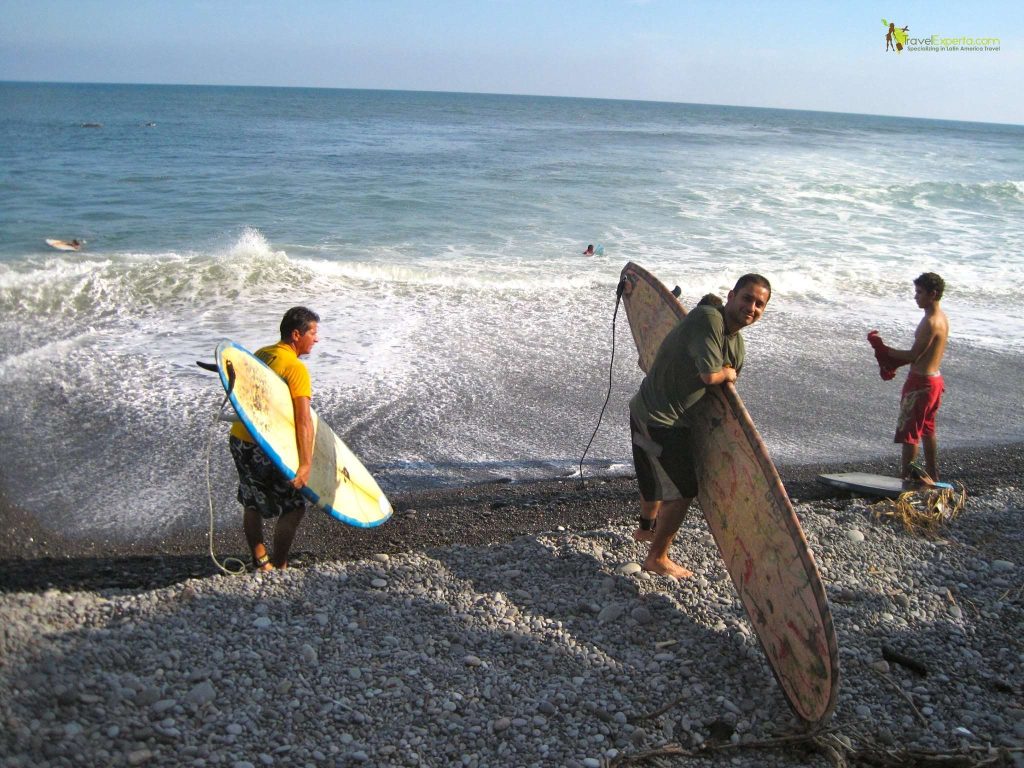
Natural disasters and climate
What are the most common natural disasters and climate hazards in El Salvador?
El Salvador faces a range of natural disasters and climate challenges because of where it’s located, its terrain, and environmental damage.
Dealing with natural disasters and climate emergencies can be challenging, but there are ways to prepare and respond effectively to minimize their impact.
El Salvador has a tropical climate, resulting in consistent hot and humid conditions year-round, with minimal temperature or daylight changes. You’ll find two different seasons that impact the weather and travel conditions: the rainy season and the dry season.
Make sure to visit the country during the dry season, it’s the high season too but it’s when you get the most out of your days.
Some of the most common natural disasters and climate hazards in El Salvador are:
Volcanoes
El Salvador has active and occasionally eruptive volcanoes because of its location on the Pacific Ring of Fire, a region known for seismic activity and volcanic eruptions.
El Salvador boasts over 20 volcanoes, with some still active, providing breathtaking views and excellent hiking opportunities, including Santa Ana, Izalco, and San Miguel.
Yet, volcanoes can also be dangerous to people and their belongings by emitting lava, ash, gas, or rocks, impacting air quality, water sources, and agriculture.
📖 Recommended Reading: If you’re looking for more useful information, check out Ultimate Guide to Volcanoes in Central America That You Can Visit
Floods
El Salvador frequently experiences devastating floods as a result of its tropical climate, rainy season, and deforestation.
The annual rainfall in the country averages around 1,800 mm, mostly falling between May and October, known as the rainy season.
At this time, excessive rainfall may lead to rivers, lakes, or dams overflowing, resulting in flash floods, mudslides, or landslides. When floods occur, they can result in harm to crops, livestock, homes, and roads, as well as lead to drownings, injuries, or diseases.
Drought
El Salvador experiences occasional severe droughts because of its climate, dry season, and climate change. In El Salvador, during the dry season, rain can be scarce.
In this period, droughts can be triggered by factors like low rainfall, or high temperatures, lasting for extended periods.
Droughts can lead to harm to agriculture, food security, water availability, and health.
Essential Travel Resources
❗Don’t forget travel insurance
This company is the one I trust, it’s one of the most essential things for any trip. It has your back in case you get sick abroad, or have an accident.
🎒Pack smarter, not bulky
Check out this vacation packing list, including all the essentials you need to pack when traveling, from travel clothing to backpacks and more.
🏡Where to Stay – Here are Suggestions
This is my favorite place to look for accommodations, it offers different types, a ton of locations, and good price options.
🗺️Get Around Hassle-Free
This one is the perfect option to look for different transportation options between cities, from flights, buses, and taxis to minivans and more.
🛫Find Cheap Flights
Whenever I need to fly, I head to this website for low-cost flights.
Safety by Area or Zone in El Salvador
El Salvador is divided into 14 departments, which are further subdivided into municipalities. Each area or zone has its own characteristics, attractions, and safety issues.
Here are some of the most popular areas or zones for travelers, and how to stay safe in them:
San Salvador
San Salvador is the biggest city in El Salvador, serving as the main hub for culture, economy, and politics. There are plenty of attractions to visit, like the National Palace, Metropolitan Cathedral, National Theater, Museum of Art, Monument to the Revolution, and Plaza Futura.
Yet, San Salvador also experiences significant levels of crime and violence, particularly in the outskirts and slums.
Some of the areas to avoid in San Salvador are:
- Soyapango, Ilopango, and Apopa are notorious for gang activity and violence.
- The historic center at night can be unsafe.
- The bus terminals are chaotic, dangerous, and prone to robberies and scams.
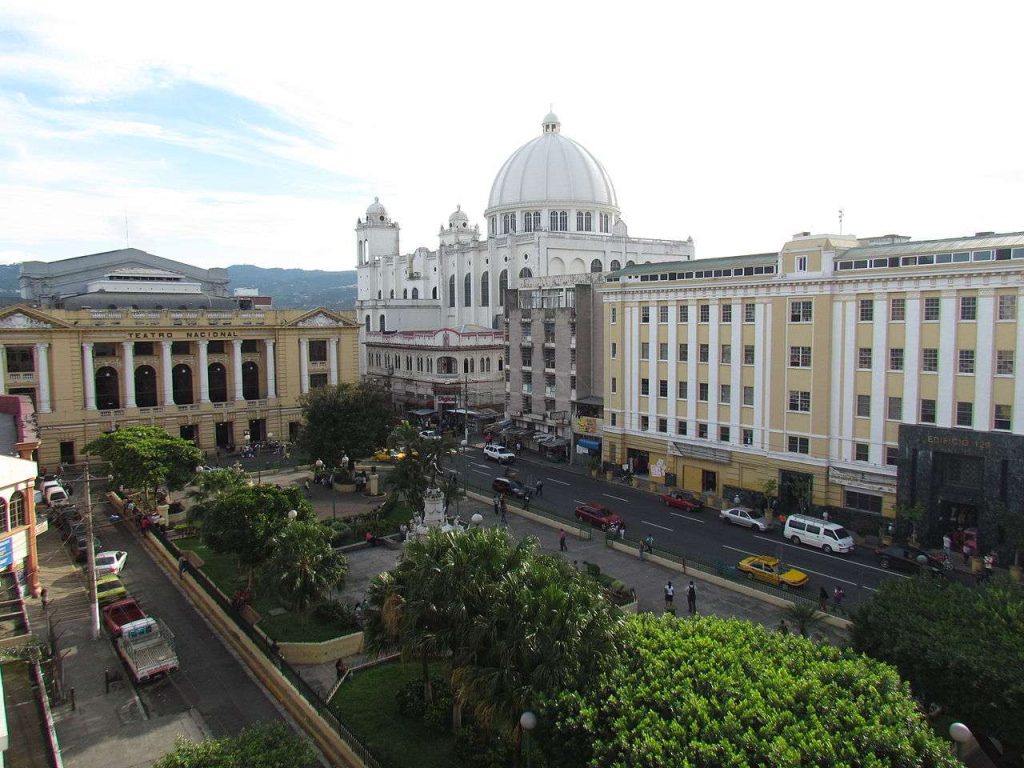
Santa Ana
Santa Ana is the second-largest city in El Salvador, serving as the capital of the Santa Ana department. The city is full of history and charm, featuring colonial architecture, vibrant markets, and welcoming locals.
There are plenty of attractions to enjoy, like the Santa Ana Cathedral, the Santa Ana Theater, the Santa Ana City Hall, the Tazumal ruins, and the Lake Coatepeque.
However, it does experience some crime and violence, particularly in the rural regions and close to the Guatemala border.
Some of the areas to avoid in Santa Ana are:
- Metapan, Candelaria de la Frontera, and Chalchuapa are close to the border with Guatemala and have high levels of smuggling, trafficking, and violence.
- The outskirts and slums of the city, are poor, neglected, and unsafe.
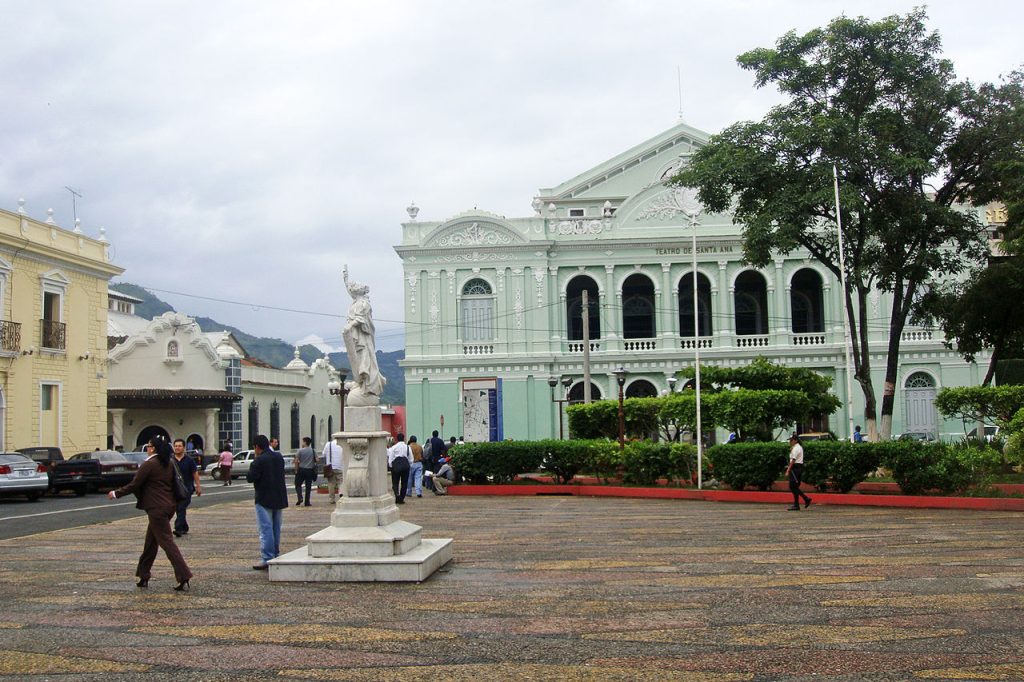
La Libertad
La Libertad is located on the coast of the country, and many people enjoy visiting this spot, whether they love surfing, the beach, or nature.
There are plenty of attractions to enjoy, like El Tunco Beach, El Sunzal Beach, El Zonte Beach, El Majahual Beach, and Walter Thilo Deininger National Park.
La Libertad also has some crime, especially in the urban areas and near the highway
Some of the areas to avoid in La Libertad are:
- La Libertad city is a busy and chaotic city, with high levels of traffic, pollution, and petty crimes in crowded places.
- The highway CA-2 is a dangerous road, with frequent accidents, robberies, and kidnappings.
- Some beaches at night are dark, isolated, and unsafe.
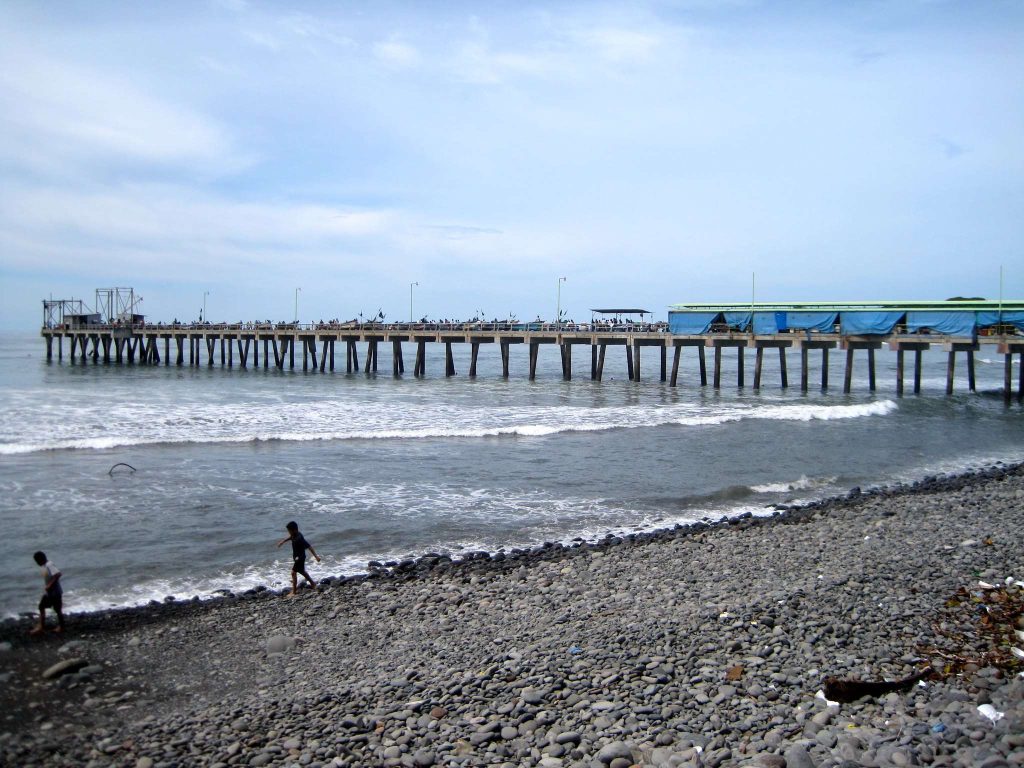
Suchitoto
Suchitoto is a charming colonial town and serves as the capital of the Cuscatlan department. The town exudes charm and tranquility, boasting cobblestone streets, whitewashed houses, and vibrant flowers.
There are several attractions to enjoy in the area, like the Santa Lucia Church, the Casa Museo de los Recuerdos, the Centro Arte para la Paz, and Lake Suchitlan.
However, Suchitoto can also have crime issues, particularly in the surrounding areas and close to the border with Honduras.
Some of the areas to avoid in Suchitoto are:
- Aguilares, Guazapa, and San Martin, which are close to the border with Honduras, have high levels of gang activity and violence.
- The rural areas are kinda isolated, and unsafe.
- The lake at night is dark, cold, and dangerous.
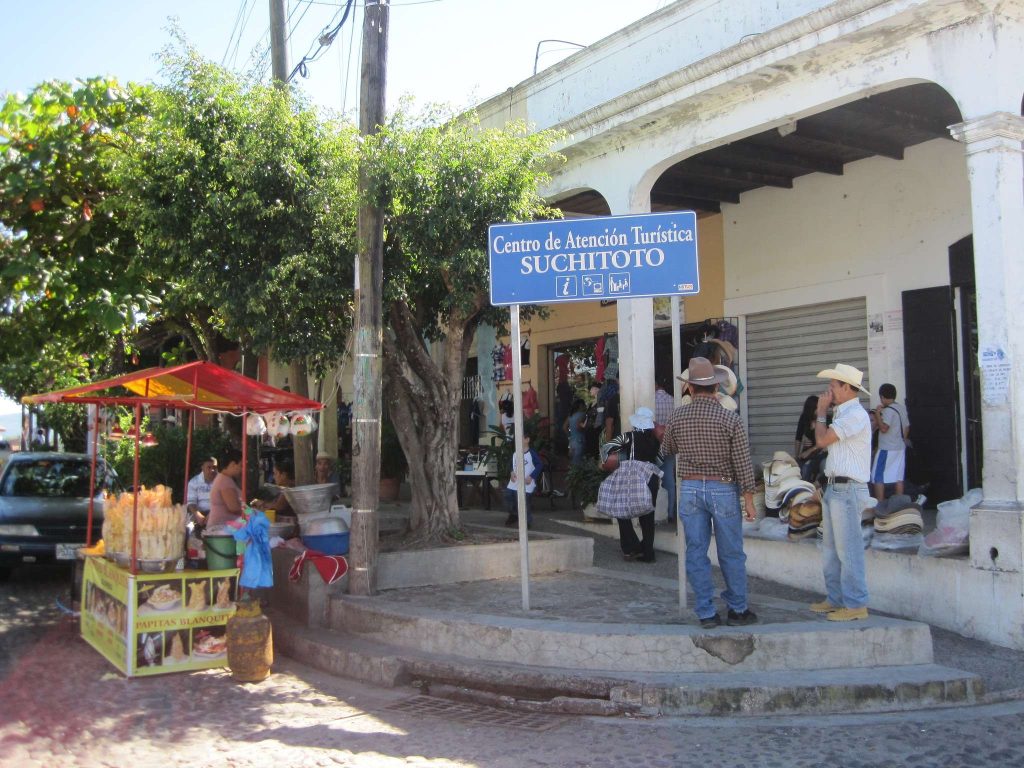
El Imposible National Park
El Imposible National Park is a natural reserve, and the largest and most biodiverse park in the country. It is a paradise for nature lovers, with mountains, valleys, rivers, waterfalls, forests, and a lot of wildlife.
It has many attractions, like the Mirador El Mulo (an incredible viewpoint), the Rio Cara Sucia, the Cerro El Leon, and the Sendero El Imposible.
However, El Imposible National Park in the nearby towns and villages can be dangerous.
Some of the areas to avoid in El Imposible National Park are:
- San Francisco Menendez, Tacuba, and Jujutla are close to the park and have high levels of poverty, corruption, and crime.
- The trails and campsites at night are dark, isolated, and unsafe.
- The rivers and waterfalls during the rainy season are fast, deep, and dangerous.
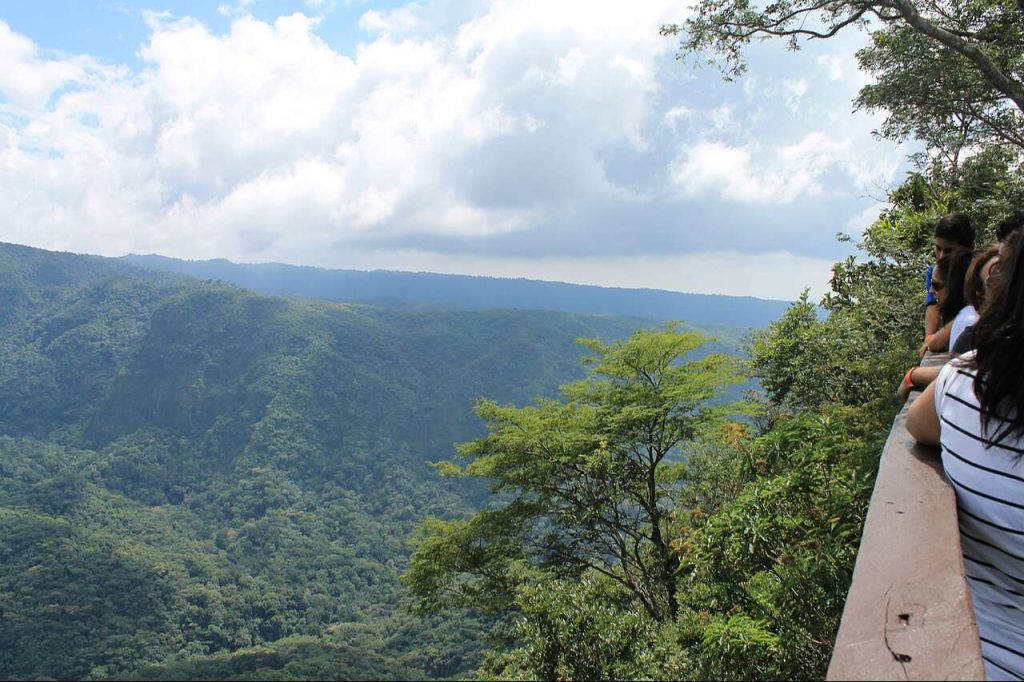
General Safety Tips for El Salvador
Before you travel to El Salvador, it is important to do some research and plan ahead, that’s one of the most important tips for a safe trip to this country.
Here are some general safety tips that you should also follow:
Get travel insurance.
Don’t forget to get travel insurance before your trip, especially if you’re heading to high-risk destinations in the country, or doing dangerous activities.
This insurance can protect you in case of medical emergencies, theft, loss, cancellation, and other unexpected situations.
Be sure to carefully review the policy and understand both its coverage and exclusions.
Get vaccinations.
When traveling to El Salvador, make sure to have a yellow fever vaccination certificate if you are arriving from a country with a risk of yellow fever transmission.
Consider getting vaccinations for hepatitis A, typhoid, tetanus, and rabies as well. Don’t forget to protect yourself from malaria, dengue, and Zika, as they are spread by mosquitoes.
Remember to apply insect repellent, cover up with long sleeves and pants, and consider sleeping under a mosquito net or in a room with air conditioning.
Avoid political demonstrations and gang activity.
El Salvador has a long history of civil war and political instability and continues to deal with social and economic challenges.
Protests, strikes, roadblocks, and clashes between the police and the protesters are not regular and happen less and less but could occur. Avoid these scenarios, as they may escalate and become unpredictable.
Avoid areas where gangs are active due to their involvement in drug trafficking, extortion, kidnapping, and murder.
You can recognize gangs by their tattoos, clothing, and hand signs. Please refrain from taking photos of them or engaging with them.
Be careful with public transportation and taxis.
Getting around in El Salvador using public transport is affordable and easy, but it can also be dangerous. Public transportation vehicles like buses can be overcrowded, uncomfortable, and not well-maintained.
They often fall victim to robbery and assault by gangs and criminals. When using public transportation, consider traveling during daylight hours, hiding your valuables, and staying alert to your surroundings.
Choosing a taxi over a bus may offer a safer option, but keep in mind that taxis are not regulated or metered. If you decide to use taxis, make sure to stick with licensed taxis, easily identifiable by their yellow license plates and a rooftop taxi sign.
It’s a good idea to discuss the fare before getting in and to avoid sharing a taxi with people you don’t know.
Respect the local culture and laws.
El Salvador is known for its strong Catholic influence and adherence to traditional values. It’s important to follow the local customs and etiquette, like dressing modestly, greeting people politely, and refraining from public displays of affection.
It’s important to follow local laws, like avoiding public drinking, refraining from carrying weapons, steering clear of drugs, and not participating in sexual tourism.
Violating regulations may lead to financial penalties, legal action, or removal from the country.
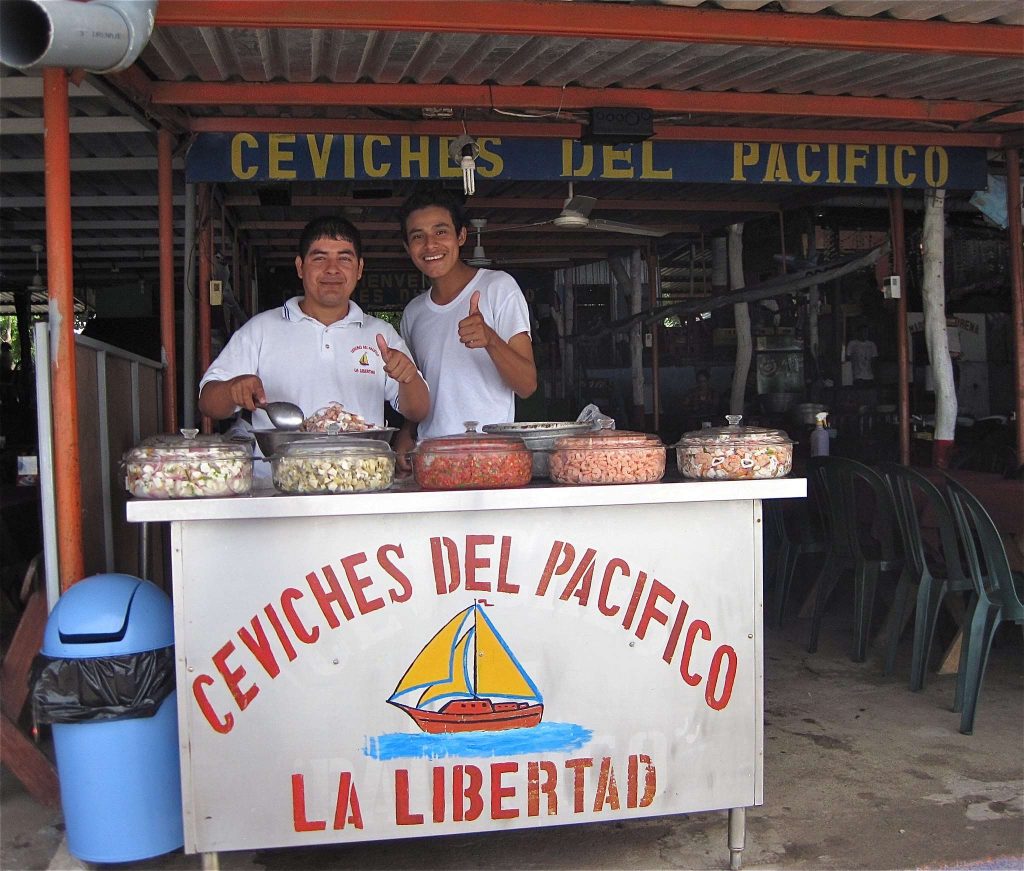
FAQ
Is El Salvador safe for solo travelers?
Traveling solo in El Salvador is safe if you remain cautious, vigilant, and respectful. Solo travelers should steer clear of nighttime travel, or venturing into unfamiliar places.
Make sure to avoid dangerous places that are known for being unsafe, and stick to tourist places since those are well maintained.
Is El Salvador safe for female travelers?
El Salvador is safe for female travelers, as long as they are aware, careful, and respectful. Female travelers should avoid traveling at night, alone, or in isolated areas.
They should also avoid wearing clothing or accessories that may be offensive or inappropriate and should also avoid attracting unwanted attention or engaging in unwanted contact.
Don’t visit places that are well known for crime activities or are not a tourist place.
Do I need a visa to enter El Salvador?
No, you do not need a visa to enter El Salvador if you are a citizen of one of the 86 countries that are exempt from the visa requirement, like the United States, Canada, the European Union, Australia, and New Zealand.
You only need a valid passport and a return or onward ticket. You can stay in El Salvador for up to 90 days as a tourist.
Disclosure: This blog post may contain affiliate links, which means that I may receive a commission for any purchases made through the links. Your trust is important to us, and we ensure that all products or services we recommend meet or exceed our editorial standards.
Last Updated on February 21, 2024
The post Is El Salvador Safe? A Complete Guide for Travelers appeared first on Travel Experta - Travel, Lifestyle, Freedom.
------------------------------------------
By: Angel
Title: Is El Salvador Safe? A Complete Guide for Travelers
Sourced From: travelexperta.com/is-el-salvador-safe/
Published Date: Wed, 21 Feb 2024 23:04:01 +0000






